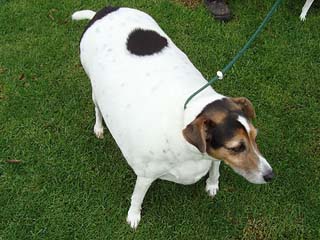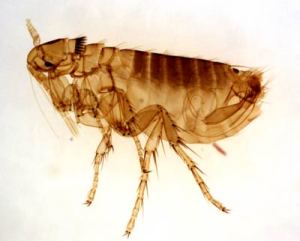It’s that time of year again. Admittedly, I love the holidays. I enjoy Christmas music more than most people I know. I love spending extra time with my family, the hustle and bustle of a crowded mall, giving presents, and I even love snow.
With all the extra distractions, parties and time away from home, the holidays can become a dangerous time of year for our pets. Here are some tips to keep your furry family members safe during the holiday season and all-year round.
Dangerous Foods
While table scraps of any type will most likely cause gastric upset, there are certain foods that are even more dangerous.
- Toxic foods: raisins, chocolate (baking cocoa is the most dangerous), garlic and onions.
- Rising bread: If consumed while still rising, the bread can continue to expand within the stomach.
- Meat drippings: Be very careful about where you dispose of meat drippings as the scent and flavor will often entice dogs to eat things they normally wouldn’t. Example: pouring meat drippings off the side of your deck into a decorative rock bed could result in your prized pooch eating several pounds of rocks.
Decorations and Household Dangers
Space heaters: Be aware of where you place heaters. They not only present a burn danger to pets, but pets can also knock space heaters over resulting in house fires.
Christmas Lights: Pets will often chew on strands of lights. Observe your pets carefully. Place lights in a place where pets do not have access to them, and do not leave your pets alone with the lights plugged in.
Christmas Tree Ornaments and Hooks: Tree ornaments do not make good toys. They are often small and easily eaten. Ornament frequently fall from trees and break -often leading to cuts on the paws and mouth. The hanging hooks frequently end up in the stomach and causing injury to paws.
Tree Tinsel and Ribbons: These objects are often very attractive to cats. Consuming these fabrics can result in an intestinal obstruction. Keep ribbons, strings and tinsel away from cats.
Pine Needles: Consuming pine needles can result cause intestinal obstruction.
Candles: Burn hazard especially to cats!
Great Gift Ideas For Your Pets
Don’t forget about your pets during gift giving time.
- An engraved ID tag: This simple inexpensive gift could be just what’s needed to reunite you and your pet if it’s lost.
- A microchip: A permanent identification chip can be placed under your pet’s skin. This will nearly ensure a homecoming if your pet escapes or is lost.
- Dental chews: Nearly all pets suffer from dental disease. This a great time to provide them with the dental chews needed to help maintain oral health.
- A ball or fetching toy: All pets benefit from exercise and it’s a great way to spend time with your pet.
- A donation to a local humane society or charitable pet organization in your pet’s name.
- Start a savings account for your pet. The extra cash will certainly be helpful when your pet needs a dental cleaning or an unexpected surgery.
I hope this blog finds you, your family, and your 4-legged friends healthy and happy. Enjoy this wonderful time of year!


